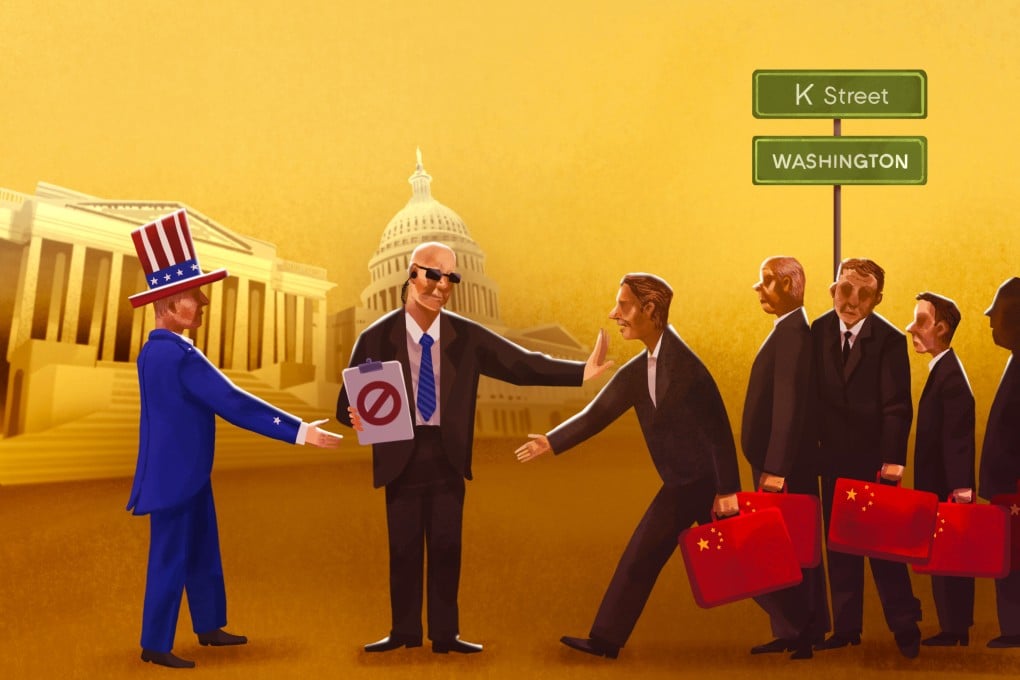As Washington cracks down on Chinese businesses, their lobbyists come under fire
- Concerns about Beijing’s potential to threaten US national security have spurred several bills seeking more scrutiny about who is representing Chinese interests
- Weeks after one list of Chinese companies and their lobbyists circulates on Capitol Hill, several firms drop their clients, including DJI and Hesai Tech

In early February, a list made the rounds among Capitol Hill staffers. It named several Chinese companies and their Washington lobbyists, as well as the federal “entity lists” – which prohibit those entities from doing business in the US – that included those companies.
Titled “Buying Influence in Washington: The Top Firms Lobbying for China”, the list – it was unclear who had compiled it – highlights some big players in the Washington lobbying scene. These included the Vogel Group and Avoq, retained by Chinese drone maker DJI; Akin Gump Strauss Hauer & Feld and Brownstein Hyatt Farber Schreck, retained by lidar maker Hesai Tech; and Steptoe & Johnson, retained by biotech firm BGI Group.
Also on the list were Chinese companies not currently named on any federal blacklists, including electronics maker Xiaomi, tech firm Quectel and electric vehicle manufacturer BYD.
The list, which the South China Morning Post has seen, coincided with reports that lawmakers are considering a ban on members of Congress from meeting lobbyists who represent Chinese companies with alleged links to China’s military – even if the meeting being sought is for an American client.

Turbulent US-China relations in recent years have led to growing concerns in Washington about China’s influence on policymaking. US lawmakers from both sides of the aisle have pushed for more scrutiny into who is lobbying for Chinese companies. They accuse Beijing of using closely connected organisations and business to discreetly advance agendas that threaten US national security.
On Monday, Marco Rubio, the Florida Republican who is vice-chairman of the Senate Intelligence Committee, said the Chinese had “gotten very good at hiring lobbyists and even deputising the corporate industry to come up here and lobby for things that are beneficial to the Chinese goals at the expense of this country”.